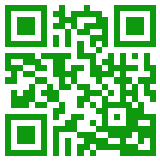 Need some insight into World War I or II? Want to find out what happened in 1812? Why not try these electronic resources available on findit.lu?
Need some insight into World War I or II? Want to find out what happened in 1812? Why not try these electronic resources available on findit.lu?
National Socialism, Holocaust, Resistance and Exile

The database National Socialism, Holocaust, Resistance and Exile 1933–1945 starts the series of 20th century German history online. The database provides fundamental primary sources on the following topics:
- National Socialist state and policy, ideology and propaganda
- National Socialist justice and legislation
- History of the NSDAP
- Holocaust
- Resistance and persecution in the “Third Reich”
- Annihilation and expulsion
- Deportation and exile
This database represents the first online research centre for extensive academic studies of the “Third Reich” with unique collections of primary sources including:
- Administration files and correspondence from the highest authorities of the “Third Reich”, especially from the party chancellery of the NSDAP
- Situation and status reports of the secret state police authorities from the Reich and the annexed and occupied territories
- Indictments and judgements from NS courts at which thousands of cases of high treason against the opponents of the regime were heard
- Adolf Hitler’s speeches, writings and orders from 1925 to 1945
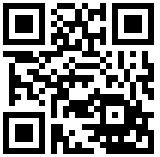
- Joseph Goebbels’ diaries from 1923 to 1945
- Expatriation and deportation lists
This database can be searched in both English and German.
Historical Abstracts

Historical Abstracts covers the history of the world (excluding the United States and Canada) focusing on the 15th century forward, including world history, military history, women’s history, history of education, and more.
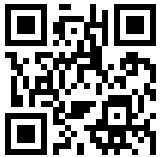 This authoritative database provides indexing of more than 3,100 academic historical journals in over 40 languages back to 1955. History and social science researchers have used Historical Abstracts to discover significant and groundbreaking work for more than 50 years.
This authoritative database provides indexing of more than 3,100 academic historical journals in over 40 languages back to 1955. History and social science researchers have used Historical Abstracts to discover significant and groundbreaking work for more than 50 years.
Centre Virtuel de la Connaissance sur l’Europe

Based in Luxembourg, the Centre Virtuel de la Connaissance sur l’Europe (CVCE) is an interdisciplinary research and documentation centre dedicated to the European integration process.
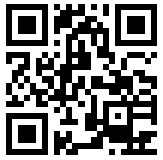 Its mission is to create, share and valorise knowledge in an innovative digital environment. As such, the CVCE’s digital collections contain a wide range of previously unpublished documents, oral accounts, contemporary film footage, analytical material and scholarly articles that document the European integration process.
Its mission is to create, share and valorise knowledge in an innovative digital environment. As such, the CVCE’s digital collections contain a wide range of previously unpublished documents, oral accounts, contemporary film footage, analytical material and scholarly articles that document the European integration process.
America: History & Life

America: History and Life is the definitive index of literature covering the history and culture of the United States and Canada, from prehistory to the present. With indexing for 1,700 journals from as far back as 1910, this database is without question the most important bibliographic reference tool for students and scholars of U.S. and Canadian history.
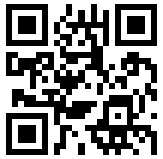 America: History and Life also includes citations and links to book and media reviews. Strong English-language journal coverage is balanced by an international perspective on topics and events, including abstracts in English of articles published in more than 40 languages.
America: History and Life also includes citations and links to book and media reviews. Strong English-language journal coverage is balanced by an international perspective on topics and events, including abstracts in English of articles published in more than 40 languages.
European Views of the Americas: 1493 to 1750

In cooperation with the John Carter Brown Library, EBSCO Publishing created European Views of the Americas: 1493 to 1750, a comprehensive guide to printed records about the Americas written in Europe before 1750 from European Americana: A Chronological Guide to Works Printed In Europe Relating to the Americas, 1493-1750. The database contains more than 32,000 records, and covers the history of European exploration as well as portrayals of Native American peoples.
The authoritative bibliography is well-known and respected by scholars worldwide, and a valuable index for libraries, researchers and individuals interested in European works that relate to the Americas. It was co-developed by John Alden and the 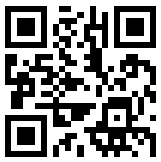 Curator of European Books at The John Carter Brown Library, Dennis Landis. The John Carter Brown Library, founded in 1846, is a foremost repository of rare books and materials and is a centre for advanced research in history and the humanities.
Curator of European Books at The John Carter Brown Library, Dennis Landis. The John Carter Brown Library, founded in 1846, is a foremost repository of rare books and materials and is a centre for advanced research in history and the humanities.
Credo Reference History

Credo Reference provides authoritative content that covers every major subject – from art to medicine, psychology to history, and technology to literature. The award-winning titles in Credo Reference are from over eighty of the world’s leading academic publishers. Proposed content undergoes a highly-selective process before being chosen for the Credo platform and is selected from a range of reference types – including general and subject encyclopaedias, dictionaries, biographies, bibliographies, chronologies, handbooks, atlases, and more. Credo’s collections are continuously updated to reflect the most relevant, up-to-date content.
Credo Reference’s technology enhances the content by adding millions of cross-reference links – related entries – that cut across topics, titles and publishers to deliver accurate, contextual results from across the entire collection. The Concept Map, a data visualization tool, is ideal for visual learners for brainstorming and the discovery of related content.
Some of the titles provided in Credo Reference’s History Collection are:
- The 9/11 Encyclopaedia
- Chambers Dictionary of World History
- Dictionary of British History
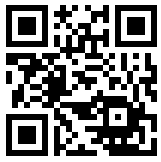
- A Guide to the Ancient World
- Who Was Who at Waterloo: A Biography of the Battle
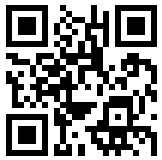
This has just been a sampling of the principal resources available in History. Click here for access to the full list of resources.
To download this article as a PDF file, click here.

 Need some insight into World War I or II? Want to find out what happened in 1812? Why not try these electronic resources available on
Need some insight into World War I or II? Want to find out what happened in 1812? Why not try these electronic resources available on 


 This authoritative database provides indexing of more than 3,100 academic historical journals in over 40 languages back to 1955. History and social science researchers have used Historical Abstracts to discover significant and groundbreaking work for more than 50 years.
This authoritative database provides indexing of more than 3,100 academic historical journals in over 40 languages back to 1955. History and social science researchers have used Historical Abstracts to discover significant and groundbreaking work for more than 50 years.
 Its mission is to create, share and valorise knowledge in an innovative digital environment. As such, the
Its mission is to create, share and valorise knowledge in an innovative digital environment. As such, the 
 America: History and Life also includes citations and links to book and media reviews. Strong English-language journal coverage is balanced by an international perspective on topics and events, including abstracts in English of articles published in more than 40 languages.
America: History and Life also includes citations and links to book and media reviews. Strong English-language journal coverage is balanced by an international perspective on topics and events, including abstracts in English of articles published in more than 40 languages.
 Curator of European Books at The John Carter Brown Library, Dennis Landis. The John Carter Brown Library, founded in 1846, is a foremost repository of rare books and materials and is a centre for advanced research in history and the humanities.
Curator of European Books at The John Carter Brown Library, Dennis Landis. The John Carter Brown Library, founded in 1846, is a foremost repository of rare books and materials and is a centre for advanced research in history and the humanities.



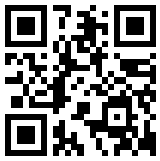

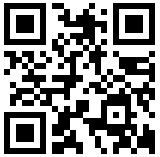
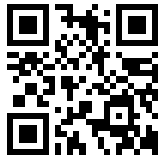 and The International Transport Forum (ITF) since 1998 – over 1 200 journal issues, 3 300 working papers, 2 900 multi-lingual summaries, 7 700 e-book titles, 16 000 tables and graphs, 25 000 chapters and articles, and 480 complete databases with more than 4.5 billion data points.
and The International Transport Forum (ITF) since 1998 – over 1 200 journal issues, 3 300 working papers, 2 900 multi-lingual summaries, 7 700 e-book titles, 16 000 tables and graphs, 25 000 chapters and articles, and 480 complete databases with more than 4.5 billion data points.
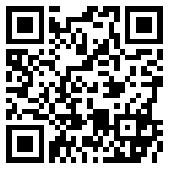
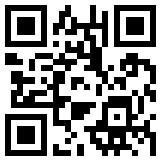 This has just been a sampling of the principal resources available in Economy. Click
This has just been a sampling of the principal resources available in Economy. Click